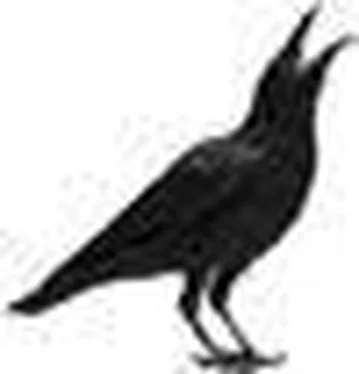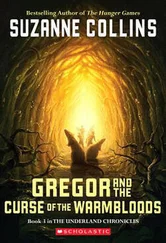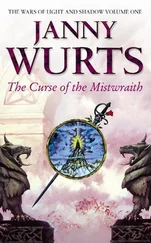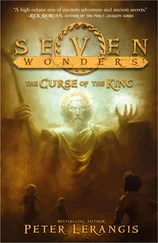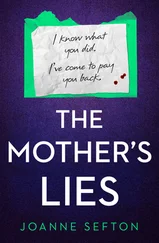He shook his head sharply, as if to rid himself of the memory.
“The other difficulty with our perceptions,” he continued at length in that maddeningly dry lecturing tone he often put on with me, “is our tendency to project them upon others. This room has unpleasant connotations for me and so I attribute the feeling to the room itself and am puzzled when you do not feel the same way.”
“Yes, sir,” I said.
“What have I told you about the incessant ‘yes, sir’s, Will Henry? It is sycophantic and demeaning to both of us.”
“Yes, sir,” I replied cheekily.
“I have been giving some thought to our . . .” He searched for the best word to describe it. “Arrangement, Will Henry. You have been with me almost two years now, and of course your services have tended to be, on the whole, more indispensable than not; still, your case is unusual in that you came to be here as a result of your parents’ untimely demise, not by any desire on your part—or on mine, in all honesty. Unfortunate circumstances forced us together, but that does not mean we are entirely helpless. As a scientist, I do not truck much in free will, but neither do I subscribe to silly superstitions of predestination or fate. My perception may be entirely true that you have been indispensable to me. It does not follow, however, that you share the same perception when it comes to me.”
He paused, waiting to hear my thoughts on the matter. When I didn’t answer, he shrugged and said, “You are nearly thirteen, the age of majority in some cultures.” He cleared his throat. “And you have demonstrated minor alacrity in lucid thought—sporadically at least,” he added. It was a particular talent of the monstrumologist, the ability to insult and praise in the same breath. “Perfectly capable of making decisions.”
“You’re sending me away.” My heart began to race. “You don’t want me here anymore.”
“Did I say that? Where do you wander off to, Will Henry? What pleasant meadows do you frolic in while I’m talking? I said you are not entirely helpless. You can make a choice and, more important, I will honor that choice. I am not a fool. It has not escaped my notice that I can be difficult to live with.”
He hesitated as if waiting for a rebuttal. When none was forthcoming, he hurried abashedly on. “I have certain idiosyncrasies. Some deficiencies in human . . . in relating to . . . What I mean to say is that perhaps I am the sort of man who lives best alone.” He frowned. “What is this? Are those tears?”
“No, sir.”
“Don’t exacerbate the matter by lying, Will Henry.”
“No, sir.”
“And then there is the issue of my profession. It is a dangerous business, our recent difficulties in Rat Portage being a perfect case in point. I’m sure it has occurred to you that associating with a monstrumologist can be hazardous to one’s health.”
I touched the still-tender wound upon my chest.
“I’ve no intention of simply putting you out on the streets, if that’s what is worrying you,” he continued. “I would find a good place for you.”
“This is my place. With you, sir.”
“I’m flattered by your devotion, Will Henry, but—”
“If I left, how would you get along? There is no one to—”
He waved his hand impatiently. “I can always hire a cook and a maid, Will Henry, and you know every week there are applications to apprentice under me, from serious scholars who are actually interested in the craft.”
These words stung. I lowered my head and said nothing.
He snorted softly. “How true that honesty is its own reward. More often than not, its only reward! We should be honest with each other, Will Henry. Your motives for staying here are no more pure than mine for allowing you to.”
“Please, sir, I want to stay.”
He stared intently at me for several long, uncomfortable moments. Was that his game? I wondered. To gauge the depths of my commitment to him? Or were his motives purer than that? Was he concerned for my safety, or troubled by his friend’s demand— I challenge you to name one time in your miserable little life when you gave a damn about anyone but yourself— and this was his way of answering it? What did the monstrumologist really want from me? And what in the name of all that’s holy did I want from him ? Did either of us know?
“It is a terrible thing, Will Henry,” he said at last. “To lose a friend.”
SIXTEEN
“I Am Pleased to Find You Here”
A man of enormous proportions was waiting for us when we arrived at Grand Central Depot the following afternoon. At well over six feet, he towered above the crowd, wide-shouldered, thick-chested, with an untrimmed tangled mass of black hair obscuring the lower half of his large pockmarked face, his bowler hat pulled low, the brim resting just above his bushy eyebrows.
He bowed low to the doctor, an exaggerated show of subservience that struck me as slightly affected, a parody of deep respect, and he greeted the monstrumologist in a thick Slavic accent.
“Dr. Warthrop, I am Augustin Skala.”
He gave Warthrop a card, which the doctor barely glanced at before pressing into my hand.

“Herr Doctor von Helrung welcomes you back to New York and requests that you accept my services.”
“And what, precisely, might those services be, Mr. Skala?” inquired the doctor stiffly.
“To arrive you to hotel, sir.” English clearly was not the Bohemian’s first language.
“Our luggage—” began Warthrop.
“To be arrived by separate coach. All taken care of. No worries for the Dr. Warthrop.”
Like the great ice-breaking prow of an arctic vessel, Augustin Skala plowed a path through the crowd as it bottlenecked before the Forty-second Street doors. We followed him to a black hansom cab hitched to an ebony behemoth of a horse. After opening the curbside door for us, Skala, with exaggerated formality and painfully ludicrous solemnity, dug into his jacket pocket and produced an envelope, which he offered, with equivalent obsequiousness, to my master. Warthrop accepted it without a word and slid into the cab, leaving me for the briefest moment alone with the Bohemian, my senses a bit overwhelmed by the intensity with which he stared down at me from so great a height, with dark, expressionless eyes and the malodorous aroma of sweat, tobacco, and stale beer that orbited his Jovian mass.
“You are who?” he asked.
“My name is Will Henry,” I answered, my voice sounding small to me. “I serve the doctor.”
“We are fellows,” he intoned in his guttural accent. “I serve too.” He dropped a huge paw upon my shoulder, lowering his face until it filled my entire field of vision. “I gladly die for Meister Abram.”
“Will Henry!” Warthrop called from within the hansom. “Snap to!”
Never had my snapping to been happier. I fairly leapt inside, the door swung shut, and the entire rig bounced and shook as Skala took his seat above us.
The whip wickedly popped, and we swung on a single wheel—or so it felt—onto the street, barely missing a policeman and forcing his bicycle directly into the path of an advancing dray loaded with dry goods. The policeman’s shrill whistle was swallowed quickly by the din of the depot—the clop-clop of the carriages and the cries of the vendors and the throaty notes of the six thirty express arriving from Philadelphia. The early evening traffic was heavy, the street clogged with carriages and bicycles, none of which seemed to concern our driver, who drove as one fleeing a fire, all the while cracking his whip and hurling obscenities in his native tongue at any and all with the temerity to cross his path.
Читать дальше
